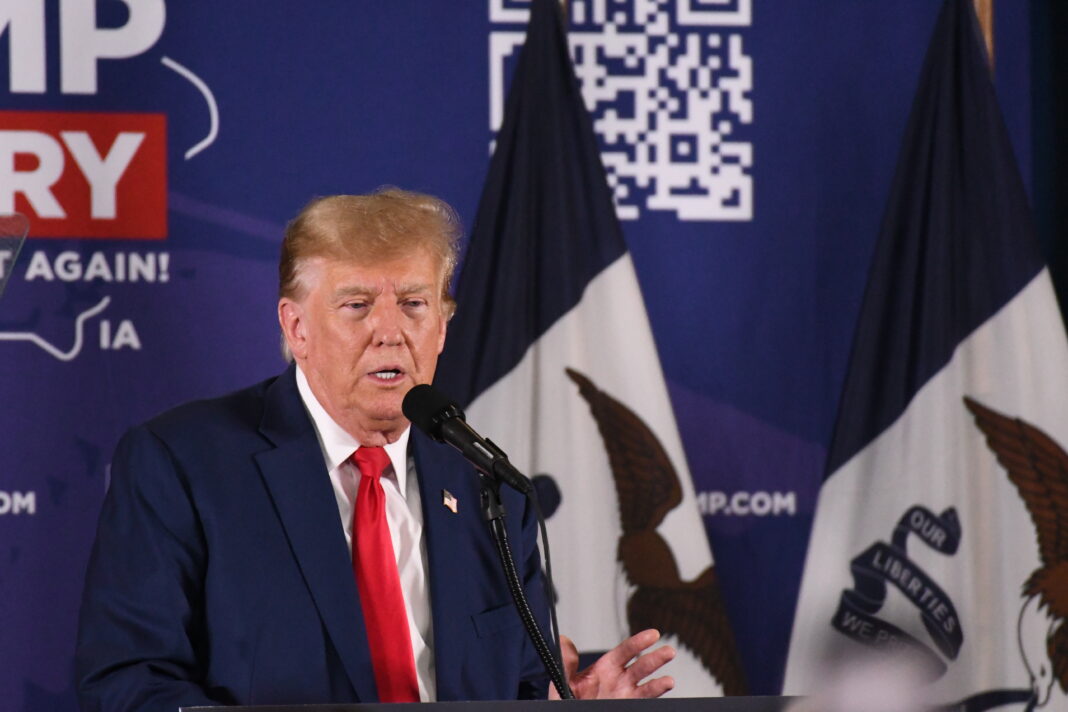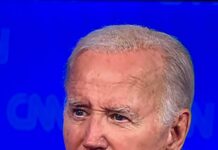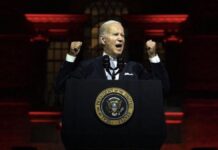Make no mistake about it: America suffered a great deal under four years of failed “Bidenomics.” The damage was devastating, especially for working people. Fortunately, help is on the way. President-elect Donald Trump has already begun to right the ship by choosing an impressive set of qualified conservatives to serve in his administration.
Personnel is policy, and having the right people in place will help Trump deliver on his America First economic agenda — passing pro-family tax cuts, enacting tariffs, eliminating harmful regulations, and ending subsidies to woke industries.
As he steers our economy forward, there’s one important area in which President-elect Trump and his team should keep the momentum going: maintaining the pressure on America’s biggest monopolies. For this reason, conservatives should be elated by Trump’s choices for key antitrust personnel: Andrew Ferguson as chair of the Federal Trade Commission (FTC), Mark Meador to serve in one of the five posts on the FTC, and Gail Slater to lead the Department of Justice’s (DOJ) antitrust division.
Ferguson, Meador, and Slater are all accomplished, principled conservatives who understand how illegal corporate monopolies distort free markets, undermine American national security, and endanger free speech rights. In their roles, they are sure to continue the work of the first Trump Administration’s DOJ and FTC, which took steps to rein in companies that abuse their immense market power to impair the function of a free and fair market, while also imposing costs and risks on consumers and workers.
As part of Trump’s broader antitrust push, his first administration took particular aim at Big Tech monopolists. This included the launch of a Technology Task Force, kicking off an investigation into Amazon, and filing groundbreaking lawsuits against Google and Facebook. These actions against tech oligarchs were just one component of the administration’s efforts to challenge the unchecked power of corporate monopolies that have illegally dictated the terms of business to the detriment of consumers and small businesses across the economy.
To the surprise of some GOP observers, the Biden administration continued some of the antitrust work Trump started. This year, the DOJ sued Ticketmaster over decades of consumer abuses, after a Senate hearing in which the company was subjected to aggressive bipartisan scrutiny. Additionally, the outgoing administration maintained Trump’s hard line on Big Tech, aligning with the priorities of GOP voices like Vice President-elect and Sen. JD Vance (R., Ohio) and Sen. Josh Hawley (R., Mo.), both of whom have spoken out against the dangers of excessive market concentration in the sector.
Over the past few years, the DOJ has sued Apple for illegally dominating the smartphone market, Google for illegally dominating the digital ads market, and Amazon for bullying sellers and consumers. They’re now investigating Nvidia for illegally controlling the market for GPU chips used in artificial intelligence applications. And the FTC, under the leadership of Chair Lina Khan, has also taken strong action, launching investigations of child privacy violations at TikTok and cloud computing market abuses at Microsoft.
The Biden administration has undoubtedly gone too far. They’ve inserted their anti-fossil fuel political agenda into antitrust matters where it doesn’t belong, harassing companies like ExxonMobil and Chevron over mergers that should be evaluated strictly on their market impact. And they’ve refused to entertain legitimate Republican concerns about the politically motivated suppression of free speech by social platforms.
But when antitrust powers are exercised responsibly, as the Trump administration did previously and will do again, reining in anticompetitive behavior and outright fraud is bipartisan and serves the public interest. Everyone benefits, in red states and blue, when the economy works as designed, when the Goliaths aren’t allowed to crowd out the Davids, and when entrepreneurism can flourish in fast-growing, low-tax states like Florida, Tennessee, and Texas. A robust free market helps the tax base grow, so ordinary people aren’t stuck with the bill as inflation lifts the costs of public services.
And state and local governments shouldn’t have to enact a patchwork of arbitrary and often unfair regulations to try to address the effects of monopoly behavior on consumers and businesses.
A large majority of Americans support stronger protections from corporate monopolies that have exploited their market positions to impair the free market, put workers at risk, invaded privacy, and limited consumer choice. But Big Tech CEOs will do whatever it takes to skirt accountability, even if it means cozying up to President-elect Trump. But ultimately, the president-elect will be wise to stay the course on antitrust despite the shameless appeals of these billionaire tech titans.
If you believe a free market serves the public interest, antitrust enforcement is not merely a regulatory obligation, but a moral imperative. President-elect Trump’s choices of antitrust enforcers show that he agrees: a hard line against anti- competitive corporate practices is the best way to protect economic freedom and ensure that innovation and competition can flourish.
Jon Schweppe is the policy director at American Principles Project. Follow him on X @JonSchweppe.















